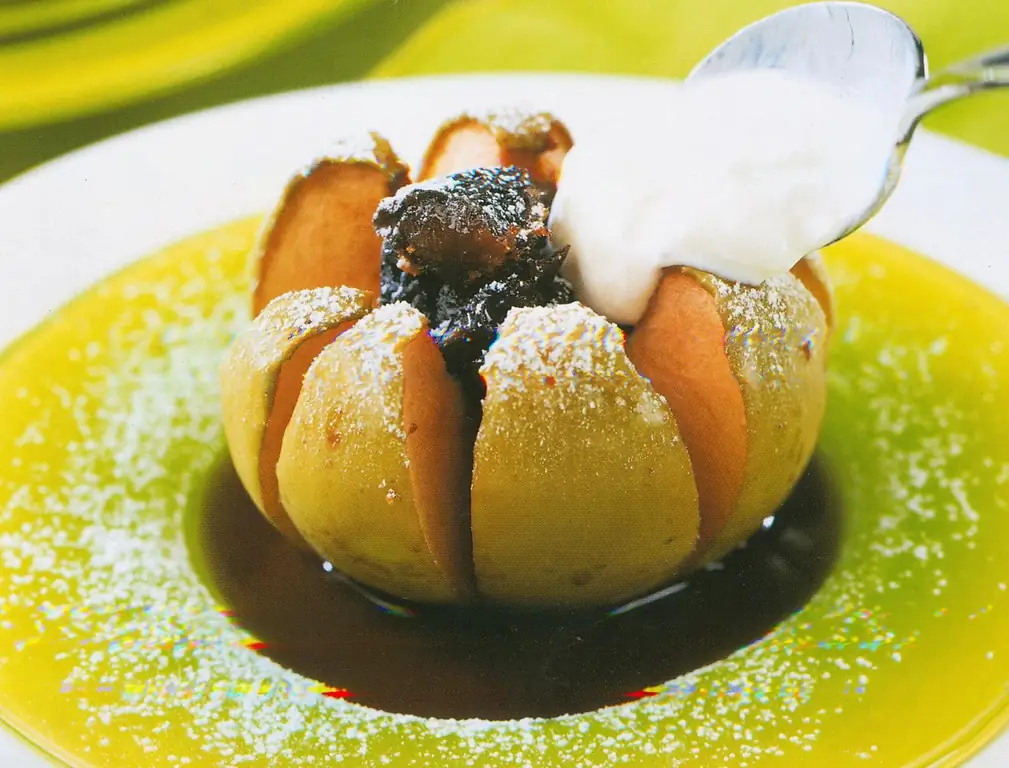
Table of contents:
- Author Bailey Albertson [email protected].
- Public 2024-01-17 22:26.
- Last modified 2025-01-23 12:41.
How to properly care for bed linen

Sleep is a guarantee of vigor, good mood, and excellent health. To sleep well, a person needs silence, dim light or darkness, and, of course, a comfortable bed. A hard mattress, oversized pillow or slippery sheets can make anyone a princess and a pea. Bed linen also plays an important role: it pleases the eye and body, and affects our health. Let's talk about how often it needs to be changed, properly washed and ironed.
Content
-
1 Types of bed linen
- 1.1 Types of fabrics by weaving density - table
-
1.2 What materials are bed linen made of
1.2.1 Bed linen from different types of fabrics - gallery
-
2 How the bed linen should be taken care of: change, washing, ironing
- 2.1 How often should adults change sheets, pillowcases, duvet covers
- 2.2 How often children should change their laundry
-
2.3 How to properly wash and iron bedding sets at home
2.3.1 Iron or not
- 2.4 Life hack: how to quickly change a duvet cover - video
Types of bed linen
Bed linens differ in the type of material they are made of and in size. Sets are sewn from fabrics of different density.
Types of fabrics by weaving density - table
| Weaving density, threads / cm | Type of fabric |
| very high, 130-280 |
|
| high, 85-120 |
|
| above average, 65-80 |
|
| medium, 50-65 |
|
| below average, 35-40 | linen and cotton |
| low, 20-30 | batiste |
What materials are bed linen made of
So, silk or cotton - the choice is yours. These are the properties of the most popular bedding materials.
- Satin is a dense fabric made of cotton or linen, the seamy side of which is rough and the front side is smooth. This property is achieved due to the special weaving of the threads. Satin is hygroscopic, that is, it is able to absorb moisture. This is a good property for bedding, as a sheet made of this material will absorb sweat if the person is hot. Satin does not let heat through. Under such a bed it won't be hot in summer and cold in winter. It is quite wear-resistant: the laundry will not lose color after two hundred washes, it is difficult to wrinkle it. Finally, it is environmentally friendly and does not cause allergies. Minus: not everyone likes the smoothness, you need cotton pajamas.
- Percale is made from linen, cotton or a mixture of cotton and polyester. The material is remarkable for its lightness, but at the same time strength and durability. Bed linen from it will carry up to a thousand washings. But then again, those who don't like smooth sheets will not like this kind of fabric.
- Turkish silk differs from Japanese silk in less strength, but has a number of advantages. This is a beautiful material - oriental colors are bright and colorful. Smooth silk will keep you cool on hot nights. It is made from natural raw materials, so silk bedding is environmentally friendly and does not cause allergies. Silk bedding does not wrinkle and is pleasant to the touch. It will last for a long time and is perfect for a solid gift.
- Viscose is an artificial cellulose fabric. Interesting in that the quality can correspond to different natural materials - cotton, linen, silk and even wool. The advantages of viscose linen are lightness, softness, hygiene. It absorbs moisture twice as good as cotton fabric, it is breathable and does not get electrified.
- Microfiber is an artificial fabric made of 100% polyester. The material, soft and pleasant to the body, practically does not fade, does not lose color and is well washed. It is durable, so it will last a long time.
- Batiste is an eco-friendly material made of cotton or linen. Feature - the lowest density of weaving threads. This makes the fabric light, translucent, silky. Batiste absorbs moisture well, does not cause allergies, and is durable. Minus - the fabric is delicate and requires special care.
- This exotic material made from bamboo fibers has interesting properties. The fabric is soft, with a natural shine, similar in quality to cashmere. Feature - antibacterial properties that persist for a long time. Therefore, bamboo bedding will suit the most demanding sissies. Lingerie, despite its softness, is durable. Minus - the fabric requires special care.
- Calico is one of the most common materials for making bed linen. Cotton fabric is low maintenance, practical and durable. In addition, the coarse calico does not wrinkle well, is resistant to washing and retains its color for a long time. The material is environmentally friendly, absorbs moisture well.
- Linen is a natural material of medium weave density. Such fabric is hygienic and durable, and due to its structure it even has a light massage effect. Linen retains body temperature well, quickly absorbs moisture, which also evaporates quickly. Linen bedding is bactericidal. And after several washes it becomes soft and pleasant to the touch.
- Chintz is a rare weave cotton fabric. Chintz is popular for its low cost. The price does not detract from its qualities: strength, lightness, smoothness.
- Flannel is a warm natural material made from 100% cotton. High-quality flannel is pleasant to the touch, soft, with a little fluff. It takes many washes and only gets softer. Easy to care for and durable. Minus - not suitable for the warm season.
In addition to the types of bed linen described, one can also highlight linen with a stretched sheet - with an elastic band, which is fixed on the mattress and does not get lost during sleep. Such sheets are found mainly from foreign manufacturers. Their size should match the size of the mattress.

Fitted sheet for high mattresses
In addition to elastic bands, buttons are used when sewing bed linen. They serve as a fastener in duvet covers and pillowcases. They can also decorate linen. Buttons or zippers are also used as fasteners. Unlike buttons, these types of fasteners are concealed.

Buttons on bed linen are both functional and decorative details.
Bed linen from different types of fabrics - gallery
-

Satin - The front side of satin is smooth
-

Percale - Percale bedding retains brightness for a long time
-

Silk bed linen -
Silk linen adds luxury to the bedroom
-

Viscose bed linen - Viscose linen is light and airy
-

Microfiber bedding - A distinctive feature of microfiber is softness
-

Bed linen from cambric - Batiste underwear is light and airy
-

Bamboo bedding - Bamboo is an environmentally friendly natural material
-

Calico - Coarse calico bedding almost does not crease
-

Linen bedding -
Linen fabric has a special texture
-

Calico bed linen - Chintz - an alternative to expensive fabrics
-

Flannel bedding - Flannel will keep you warm on winter nights
How should bed linen be taken care of: change, washing, ironing
If you use and care for a sleeping set correctly, then it will last a long time and will delight you for more than one night. During sleep, a person loses liquid - from two to four glasses - and all of it is absorbed by the bedding. Therefore, it is important not to make the bed right away, but to wait at least an hour after you get up for the laundry to be ventilated and dry. This must be done in order to prevent the appearance of fungus and bacteria that multiply rapidly in a humid environment. Before going to bed, when the bed is just made, it is advisable to ventilate the room. Clean air will refresh your laundry and prevent germs and bacteria from growing on it.
How often should adults change sheets, pillowcases, duvet covers
But bed linen needs to be changed once a week. Even though we go to bed clean, it gets as dirty as our clothes. It's just that these impurities are not visible to the eye:
- dead skin cells;
- lost hair;
- sweat;
- fat and other secretions.
And all this serves as food for microscopic organisms: mites, fungi, bacteria. Mites can cause allergies, the damage to the fungus and bacteria is obvious. Even the flu virus can remain on bedding after the owner is ill. Therefore, changing your bedding should be taken as seriously as changing your everyday clothes.
How often children should change their underwear
Baby bedding should be changed at least once a week, and better than two, because the child's body is more susceptible to respiratory diseases, the influence of allergens, children sweat more often. Dust and waste products of the body should not accumulate on the baby's bed. Especially carefully you need to monitor the linen in the crib of a newborn child, whose body is not yet adapted to the environment.

Newborn baby's bed should be changed twice a week or more.
How to properly wash and iron bedding sets at home
Bed linen must be washed, taking into account the material from which it is sewn. First, a few tips that are suitable for all types of fabric:
- read the care instructions on the kit packaging and try to stick to them;
- separate white linen from colored, sort by type of fabric;
- use bleach carefully, as it can damage the material;
- wash baby clothes with special products;
- load the drum of the machine by 50%, so the laundry is better rinsed and squeezed out;
- turn things inside out.
Next, pay attention to the fabric composition of your laundry.
- White cotton laundry can be washed at 90 ° C. For colored items, 40 ° C is sufficient. Cotton cannot be washed together with synthetics - the fabric becomes stiffer. Drying is carried out flat and away from sunlight. It is easier to iron slightly damp products from the front side.
- Linen can be boiled and washed at 60 ° C water temperature. And before that, the products are advised to keep them soaped in warm water for one hour, then wash with powder and a tablespoon of vinegar, rinse. You can dry only flattened. Iron on maximum heat slightly damp.
- It is better not to wash silk at home and go to dry cleaning.
- It is recommended to wash clothes made of synthetics at a temperature of 60 ° C and below, do not bleach, and iron and dry at a temperature not higher than 50 ° C.
Iron or not
There are several reasons for ironing.
- During ironing, germs and dust mite larvae are killed.
- The fabric becomes stronger as its fibers melt.
- The bed linen becomes softer.
There are also arguments against ironing bed linen.
- Silk and satin items absorb less moisture after ironing.
- Static electricity builds up in your laundry and damages your sleep.
- European psychologists argue that ironed sheets lead to conflicts in the family and even to a decrease in sexual activity.
Of course, you have the right to decide for yourself whether to iron the bed or not. But remember that baby kits, especially for newborns, must be ironed! Thus, by properly caring for bed linen, you take care not only of things, but also of your health and your loved ones.
Life hack: how to quickly change a duvet cover - video
Bed linen care is a necessary part of every family's life, which is also important in terms of hygiene. Therefore, it is so important to know how often it needs to be changed for adults and children, the rules for washing and ironing products from different types of fabric.
Recommended:
How To Wash An Apple From Clothes (for Children Or Adults), How To Wash Your Hands Of This Fruit, Ways To Remove Stains From Apple Juice And Other Tips

Methods for cleaning white and colored things from apple traces. Their pros and cons. How to remove old tracks. How to wash your hands after peeling apples
How To Bake Apples In The Microwave: Recipes With Baked Fruits For Children And Adults + Photos And Videos

How to bake apples in the microwave. A step-by-step master class for preparing a treat with nine different fillings. Video recipe
How And How Much To Cook Semolina Porridge In Milk And Water Without Lumps: Recipes And Proportions With Photos And Videos, For Children, Including

How to cook semolina correctly: the technology of cooking in water, milk and milk powder, as well as options for serving a finished dish with photos and videos
How To Properly Wash Makeup Brushes, How Can You Wash Cosmetic Sponges (including For Foundation), How Often You Need To Do It

How often and correctly you should wash your makeup brushes and sponges. Home and professional cleaning tools for cosmetic tools. Instructions. Video
How To Celebrate A Birthday In An Unusual And Inexpensive Way: Ideas For Adults And Children

Birthday options for a child, teenager or adult. Original ideas that can be easily and inexpensively implemented on your birthday
